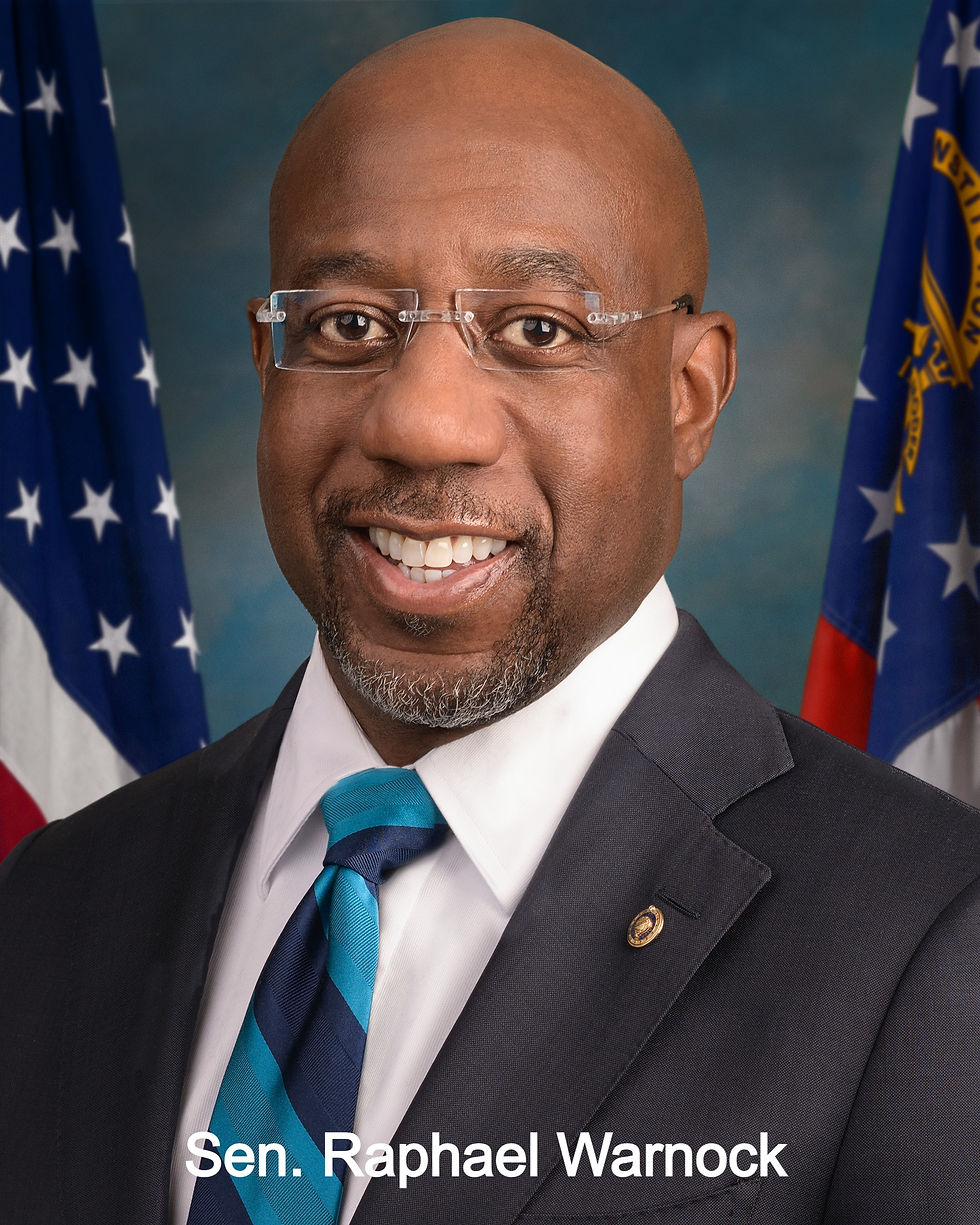An America as Good as Promised
- Dr. RL Booker

- Apr 22, 2021
- 4 min read
Updated: Apr 22, 2021
America can't live up to ideals while suppressing votes
Northwest Arkansas Democrat-Gazette Op-ed (Published on April 22, 2021)
Author: Dr. RL Booker
Editor: Sara Bishop

The right to vote underlies every freedom and democratic principle we share as Americans. Without it, the project of democracy fails. There are no freedoms or liberties without the fundamental right to create a government that represents ‘We the People’. The power and pull of this aspiration have led to countless wars and billions of dollars invested overseas to export the values of our democracy around the world.
It has also led to critical change at home. The history of freedom—for women and people of color— in this country is about resolving the tension between American promises and American practices when it comes to excluding specific communities from exercising their right to vote. Our American identity insists on the dignity of the individual, regardless of the color of their skin, the circumstances of their family or bank accounts, the degrees they may or may not hold, their gender or sexuality, or even their religious or political allegiances.

As I survey the latest round of voting restrictions proposed (and passed) across the country, I hear the voice of Barbara Jordan, the first African American elected to the Texas Senate after Reconstruction and the First Southern African American woman elected to the United States House of Representatives. "What the people want is simple. They want an America as good as its promise."
According to the Brennan Center for Justice, in just five months after the 2020 election, 47 states have carried over, proposed, or introduced more than 350 legislative bills that would suppress the votes of millions of Americans. If passed, these bills would overwhelmingly affect disabled, poor, young and elderly residents, people of color and people returning to society from time in prison. These bills specifically impact folks who live in low-income and impoverished communities. What is left of the American Dream if we target and exclude these individuals from voting, the bedrock of democracy?
Proponents of these laws insist that they are a means to protect the electoral process from fraud. Yet election fraud is a baseless and overwhelmingly debunked claim. In a recent interview, Gabrial Sterling, Chief Operating Officer for the state elections in Georgia and a Republican stated, “it is unfortunate that the former president of the United States has largely driven this narrative and undermined people's faith in elections...elected representatives in Georgia had people screaming at them, saying, 'you have to do something', so they did.”

Georgia's new law, Senate Bill 202, is one of the most restrictive laws that we have seen in a while. While the law has some expansive voting initiatives, we cannot overlook the suppressive initiatives. One of the most disturbing parts of Georgia's new law is that the five-person state election board will no longer be chaired by the duly elected secretary of state. The chair will now be appointed by the state election board. The state election board will also have the power to remove duly elected county election boards and appoint an entire new board for any reason. Senator Raphael Warnock stated that this law, "will allow for a hostile takeover of local boards of elections if the Georgia legislature filled with politicians doesn't like the outcome of an election...it's anti-democratic, it's un-American." Other states are currently looking at Georgia as a blueprint to create and pass similar laws.
For the last few months, the question that has lingered in my mind is why elected officials who have for years relied on courts to determine elections now refuse to accept the rulings from 61 courts, including the Supreme Court? The straightforward answer is that the results of the 2020 election did not favor Republicans. Many also fear that high election turnout rates—the sign of a healthy democracy—may threaten the power and status of a privileged group. But isn't the promise of America fulfilled when poor people, people of color, and those who have in most cases been overlooked have the power to affect change, as Dr. King envisioned?

Fear, not aspiration, propels the most recent round of voting restrictions. Is this what it means to make America great again? There is a large segment of our country and our community who believe so. While they may disagree that the elections were 'free and fair,' they can have confidence that 'We the People' made this decision. It just didn't go their way. And if our democratic republic continues to hold, they will have the opportunity to make their voice heard again in two and four years.
As Americans, we should all agree that attempts to diminish the promise of America by restricting voices will be the end of democracy, not its restoration. In the words of founding father John Adams, "let us neglect all party [loyalty] and advert to facts; let us believe no man to be infallible or impeccable in government...take no man's word against evidence, nor implicitly adopt the sentiments of others, who may be deceived themselves, or maybe interested in deceiving us."
References
Austin, D.J. (2020, November 2). These Georgians can't vote on Tuesday. But they're mobilizing by the thousands. Facing South. https://www.facingsouth.org/2020/11/these-georgians-cant-vote-tuesday-theyre-mobilizing-thousands
Brennan Center for Justice. (2021). State Voting Laws. https://www.brennancenter.org/issues/ensure-every-american-can-vote/voting-reform/state-voting-laws
Katie, Couric. (2021, April 5). Georgia election official Gabriel Sterling defends new voting law, rails against suppression claims. [Video]. Youtube. https://youtu.be/hLVTlKFk7m0?t=241
MSNBC. (2021, March 26). Sen. Warnock: New Georgia Voting Law Is 'Anti-Democratic' | Craig Melvin |. [Video]. Youtube. https://youtu.be/av55AwKHUms?t=16
National Archives. (2021). VI. "U" to the Boston Gazette, 29 August 1763. https://founders.archives.gov/documents/Adams/06-01-02-0045-0007



Comments